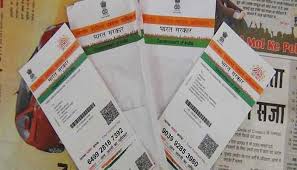In yet another attempt to crack the whip on shell companies, the Ministry of Corporate Affairs has issued notices to companies which were supposed to act as non-banking financial companies (NBFCs) but have not registered with the Reserve Bank of India (RBI).
The ministry has taken this action to seek an explanation from these companies on their businesses within 10 days, a source said
 If companies are found to be in the non-banking financial activities such as lending, investment or deposit acceptance as their principal business, without the RBI registration, the central bank can impose a penalty or even prosecute them in a court of law.
If companies are found to be in the non-banking financial activities such as lending, investment or deposit acceptance as their principal business, without the RBI registration, the central bank can impose a penalty or even prosecute them in a court of law.
A similar attempt was undertaken by the RBI a few years back. In 2013, the RBI had clamped down on unregistered NBFCs after the Saradha scam. The central bank undertook such an exercise even in 2014. The pan-India figure of such entities back then was around 70,000. The number of non-registered NBFCs has risen since then, an official said.
The Securities & Exchange Board of India (Sebi) had recently put 331 companies on heightened surveillance. It also delisted entities it suspected of being shell companies. The Centre, too, has frozen bank accounts of 200,000 companies after these were struck off by Registrar of Companies. The directors of these firms were also banned.
The Centre and its agencies are not only taking corrective action but are also initiating pre-emptive steps to check the menace of dormant companies. It is working with Sebi to get all public unlisted companies to issue shares online. Experts said this would ensure greater transparency in these companies and bring down litigation.
After demonetisation, a number of shell companies were found to be operating with the same address, not directly contributing to the mainstream economy. It was then that the government sprung into action.
An NBFC is a company registered under the Companies Act, 1956, engaged in the business of loans and advances among other functions. It is also a company which receives deposits under any scheme or arrangement in one lump sum or in installments by way of contributions or in any other manner, as its principal business.
Source: Business Standard





